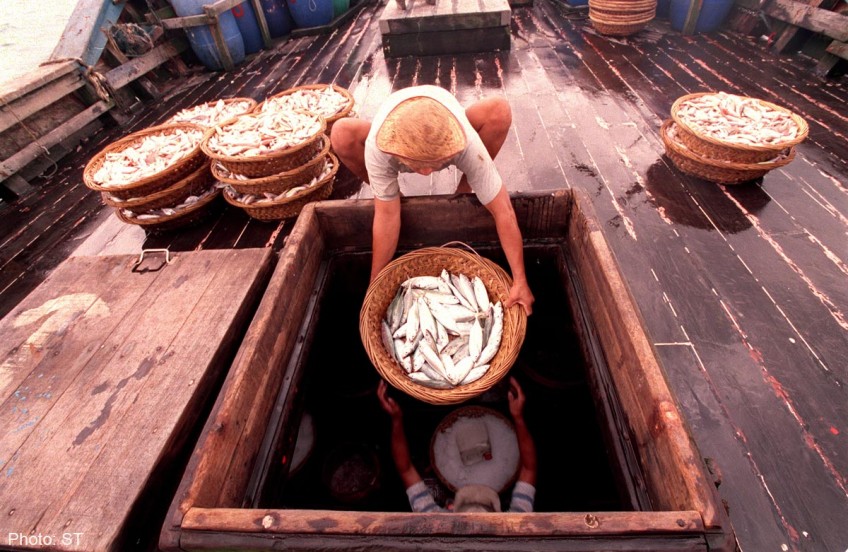China may not strictly enforce latest fishing curbs


CHINA- In November 2012, Hainan island passed a law giving its police the power to board foreign ships intruding into its waters in the South China Sea, sparking concerns among neighbours about freedom of navigation and access to the fish-rich area.
But in the past year, Hainan has not enforced the law, say analysts such as Dr Liu Feng of the National Institute for South China Sea Studies.
Citing non-enforcement and other factors, Dr Liu argues the brouhaha over the latest move by China regarding foreign ships has been overblown.
“Foreign countries should not make a big deal out of nothing without understanding how things work in China,” he told The Straits Times.
Dr Liu, an expert on South China Sea disputes between China and several ASEAN countries and Taiwan, made three points. First, Hainan required foreign fishing vessels to seek approval to operate in Chinese waters as far back as in 1993 and again in 1998, as part of rules introduced under China’s national fisheries law.
Second, the rule was just one of 40 others passed last November, and was aimed at regulating the fishing industry and banning illegal fishing. Thus, Hainan’s focus is more domestic than foreign, Dr Liu noted.
Third, although Hainan claims administrative control over 2 million sq km of the South China Sea, estimated to cover 3.5 million sq km, effective enforcement is possible only within its 22km-wide territorial waters.
Security analyst Taylor Fravel of the Massachusetts Institute of Technology, writing this week on the Diplomat foreign affairs portal, also sought to allay concerns. He said the new measures “reflect part of a continuing effort to affirm and reaffirm China’s claims in the South China Sea, but are unlikely in the short to medium term to result in a sustained Chinese effort to control fishing in these vast waters”.
“Nevertheless, the key question is whether China is able – or even willing – to implement the new rules actively and aggressively throughout these waters,” Dr Fravel said.
Still, Singapore-based analyst Ian Storey of the Institute of Southeast Asian Studies said the development will be viewed with concern across the region because “basically China is telling its neighbours that the maritime resources within a nine-dash line belong to it and that regional states must first ask permission from Beijing to exploit those resources”.
Since 2009, China has used a controversial nine-dash line covering a large portion of the South China Sea to justify its sovereignty claims against Malaysia, Vietnam, the Philippines, Brunei and Taiwan.
Dr Storey said, under the United Nations Convention on the Law of the Sea, coastal states cannot regulate economic activities outside their 200 nautical mile exclusive economic zones.
“Yet, China is trying to do just that in an area covering approximately two-thirds of the South China Sea. Such a move is therefore incompatible with international law and represents yet another attempt by China to challenge the existing international order,” he told The Straits Times.
Regional security expert Carl Thayer thinks China could apply the rule selectively and only in waters claimed by the Philippines as a means of increasing pressure on Manila.
“Pressure would be aimed at concessions and intimidating other Southeast Asian states from showing solidarity with the Philippines,” he said.

Get a copy of The Straits Times or go to straitstimes.com for more stories.